Some of the world’s most successful companies are investing in mindfulness training for their employees to help them deal better with stress and workplace challenges. Why?
‘MINDFULNESS’ MEANS BEING present in the moment, aware of what is going on inside and around us instead of engrossed in the merry-go-round of our thoughts and emotions. Meditation quiets the mind and fosters new ways of relating to whatever external stressors emerge in the workday.
Everyone knows that training makes our body stronger, fitter and more flexible. Now, neuroscience research shows that mindfulness training cultivates the innate capacities of the mind to BE PRESENT
… to step out of automatic pilot and to create space so we can be clearer, calmer, more focused, more creative, even more compassionate.
Continuous partial attention
It’s not how long we sit at a desk but the attention we give to the task in hand that determines the value we bring. Many people today are in a state of ‘continuous partial attention’ which impacts their performance, relationships and well-being negatively. Mindfulness practise alters how we relate on a moment to moment basis with experience – in ways that enable an elevated capacity to focus/remember/learn, regulate and manage emotions and relate with colleagues. This makes a huge difference in how we function in our work lives.
As a result, some of the world’s most successful companies including Google, McKinsey, KPMG, Barclays, Apple, Yahoo, Nike, Ford, Sun Life Financial and Starbucks are investing in mindfulness training for their employees. Some of these have even integrated mindfulness into their corporate culture:
Janice Marturano – General Mills – (company behind Cheerios cereal andHäagen-Dazs ice cream)
Janice refers to herself as a reformed ‘21st century juggler’ and is of the biggest names in this area. She brought meditation training to over 500 employees at packaged food giant General Mills, as well as Intel, Target, Mayo Clinic and United Way. In the wake of these successes, she founded the Institute for Mindful Leadership where she has developed and teaches courses to executives and leaders around the world. The Financial Times (Aug 2012) cited research results of its effectiveness:
- 80 per cent reported a positive change in their ability to make decisions with more clarity
- 89 per cent reported enhanced listening capabilities (to themselves and others)
- 83 per cent ‘take time each day to optimise my personal productivity
- 82 per cent ‘make time to eliminate tasks/meetings with limited productivity value.
Chade-Meng Tan (Jolly Good Fellow) – Google
Google offers mindfulness and emotional intelligence training to its workers with the Search Inside Yourself (SIY) programme pioneered by Chade-Meng Tan who also authored Search Inside Yourself: The Unexpected Path to Achieving Success, Happiness (and World Peace). The training has three parts: attention training, self-knowledge and building useful mental habits and has been delivered to more than 1,000 employees. Chade-Meng Tan says “Mindfulness is an idea whose time has come. For a long time practitioners knew, but the science wasn’t there. Now the science has caught up.”
Tara Healy and Tami Ireland – Harvard Pilgrim Healthcare
This financially stable Massachusetts-based insurance provider had been in receivership for five years when they quietly piloted a mindfulness course that was an immediate success. The pilot blossomed into Mind the Moment, which has now been delivered to 30 per cent of Harvard’s 1,200 employees and client organisations. On evaluation, participants reported being more focused, less stressed and overwhelmed as well as more productive and energetic. Relationships with colleagues and bosses are better.
Mark Bertolini – Aetna Insurance – 3rd largest health insurer in US with 30,000 employees
Mindfulness helped Bertolini recover from a serious accident and he became an advocate: “Every morning I get up and I do my meditation before work, that’s my wellness programme. It helps me be more centred, more present.” he stated. He recently said on CNBC that the most stressed-out employees’ health care costs are $2,000 higher than average employees and ‘mindfulness’ benefits yield an 11-to-1 return on investment. His mission is to promote yoga and mind-body therapies.
Jeff Weiner – LinkedIn
The list goes on and on… An annual conference called Wisdom draws together thousands of technologists from Silicon Valley like Twitter, Facebook and LinkedIn who trade mindfulness tips. Jeff Weiner, CEO of the social-networking site LinkedIn says “compassion” and “listening” are now fundamental principles of his leadership.
Wisdom 2.0 Europe
Google Dublin are hosting the first ‘Wisdom Conference’ here on Sept 16 – 18; evidence that change is afoot in how we live and work. Business leaders, neuroscientists, tech entrepreneurs, and others will gather to explore how to live wisely / mindfully in the digital age.
The benefits of practising mindfulness
Thirty years of research and clinical trials has conclusively proven the value of mindfulness in reducing stress and increasing well-being. A National Institutes of Health study showed that the health benefits could even be seen as a matter of life and death, with a 23 per cent decrease in mortality, a 30 per cent decrease in death due to cardiovascular problems, and a big decrease in cancer mortality as well. Now, a growing body of empirical research is showing equally striking benefits in terms of focus, clarity, creativity and energy, making the corporate world sit up and take mindfulness seriously. Research evidence shows improvements in:
- Cognitive function and flexibility (concentration, memory and learning)
- Emotional reactivity and ability to be self aware and self manage
- Productivity
- Employer/employee and client relationships
- Job satisfaction
- Costs of staff absenteeism and turnover.
Mindfulness helps people to be in their ‘right mind’ and ‘right heart’.
It encourages people to see the bigger picture, be more focused, open, accepting, attuned, collaborative, generous and discerning; it cultivates innate intelligence and moves teams towards co-operation and win-win outcomes. There is an equally clear bottom line but the rules/structures/processes are very different. They are more flexible and responsive and the whole organisation is more dynamic and a better place for ‘HUMAN BEINGS’ to work.

Interested in learning more about Workplace Mindfulness Programmes… Please contact Joanne with any query?
“CLS asked Joanne to run a series of Mindfulness Workshops as part of our employee well-being program. Participants found the program really beneficial in helping to reduce stressful situations, maintain focus on important things, improve employee relationships as well as work / life balance issues. We found Joanne to be excellent in facilitating the workshop and the feedback afterwards was very positive”. Myles Molloy, Financial Controller, CLS
For more information
Please don’t hesitate to contact Joanne if you have any query?





